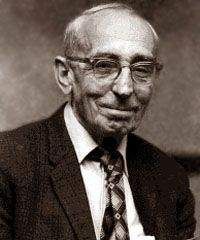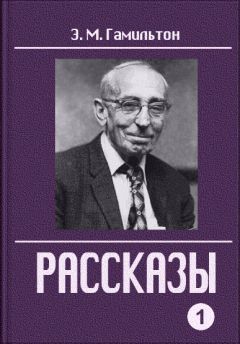Пользователь - o 3b3e7475144cf77c
lords; sumptuous hotels, banks that were temples of Mammon, department stores filled with
every sort of luxury goods—and wandering about the streets, hiding in stone caves and cellars,
or camping out in tents in vacant spaces, uncounted hordes of hungry, ill-clothed, fear-driven,
and hate-crazed human beings. Out of a population of four million it might be doubted if there
were half a million really contented. There was no street where you could escape the sight of
pinched and haggard faces; none without beggars, in spite of the law; none where a well-
dressed man could avoid the importunities of women and half-grown children, male or female,
seeking to sell their bodies for the price of a meal.
Shut your eyes to these sights and your mind to these thoughts. The city was proud and
splendid, lighted at night like the Great White Way in New York. The shop windows were filled
with displays of elegance, and there were swarms of people gazing, and some buying. Tell
yourself that the stories of distress were exaggerated; that the flesh of boys and girls had been
for sale in Nineveh and Baghdad, and was now for sale in London and New York, though
perhaps they used a bit more Anglo-Saxon hypocrisy. Prostitution has been the curse of great
cities ever since they began; swarms of people come piling into them, lured by the hope of easy
wealth, or driven from the land by economic forces which men have never learned to control.
This was something about which Freddi Robin should have been able to speak, he being now
a duly certified Herr Doktpr in the science of economics. He reported that the great
university had left it still a mystery to students. The proper academic procedure was to
accumulate masses of facts, but to consider explanations only historically. You learned that the
three-stage pattern of primitive economic progress as taught by Friedrich List had been
abandoned after the criticisms of anthropologists, and that Roscher's theory of national
economics as a historical category had been replaced by the new historical school of Schmoller.
It was all right for you to know that in ancient Rome the great estates, the latifundia, had been
worked with slave labor, thus driving independent farmers to the city and herding them into
ramshackle five-story tenements which often burned down. But if in the class you pointed out
that similar tendencies were apparent in Berlin, you would be looked at askance by a professor
whose future depended upon his avoidance of political controversy.
To be sure, they were supposed to enjoy academic freedom in Germany, and you might listen
to a Catholic professor in one lecture hall and to a Socialist in the next; but when it came to
promotions, somebody had to decide, and you could hardly expect the authorities to give
preference to men whose teachings fostered that proletarian discontent which was threatening
to rend the country apart. At any rate, that is the way Freddi Robin reported the situation in the
great University of Berlin.
IV
The Budds arrived a week or so before the national elections in September 1930. The city was
in an uproar, with posters and placards everywhere, hundreds of meetings each night, parades
with bands and banners, crowds shouting and often fighting. The tension was beyond anything
that Lanny had ever witnessed; under the pressure of the economic collapse events in Germany
were coming to a crisis, and everybody was being compelled to take sides.
The young people wanted to see these sights. Hansi and Bess must attend a big Communist
gathering the very night of their arrival, and the others went along out of curiosity. The great
hall in the Moabit district was draped with red streamers and banners having the hammer and
sickle in black. Also there were red carnations or rosettes in people's buttonholes. The crowd
was almost entirely proletarian: pitiful pinched faces of women, haggard grim faces of men;
clothing dingy, generally clean but so patched that the original cloth was a matter of
uncertainty, many a man had had no new suit since the war.
The speakers raved and shouted, and worked the crowd into a frenzy; the singing made you
think of an army marching into battle. A quartet sang chants with hammering rhythms, the
repetition of simple words, like lessons repeated by children in school. Lanny translated for his
wife: "Be ready to take over! Be ready to take over!"
Irma had learned a lot about this subject during her sojourn in these two strange families;
she had listened to Uncle Jesse, and to Hansi and Bess arguing with Lanny, and now and then
with Hansi's father. They didn't want to kill anybody—not unless somebody resisted. All they
wanted was to reproduce in Germany what they had done in Russia; to confiscate the property
of the rich and reduce them to their own slum level. Johannes had smiled and said they would
make a museum out of his palace, and that would be all right with him, he would buy another
in London, and then one in New York, and then one in Tahiti—by which time Russia would have
restored capitalism, and he would return to that region and make his fortune all over again.
The financier made a joke of it, but it was no joke at this Versammlung. Not one single laugh
in a whole evening; the nearest to it was mocking jeers, hardly to be distinguished from cries of
rage. This was what they called the "proletariat," the creatures of the slums, threatening to
burst out, overcome the police, and raid the homes of those whom they called "exploiters." The
speakers were seeking election to the Reichstag, where they would pour out the same kind of
tirades. Irma looked about her uneasily, and was glad she had had the sense not to wear any of
her jewels to this place. It wasn't safe anyhow, for the National Socialists often raided the
crowds coming out from Red meetings, and there were rights and sometimes shootings.
V
The Social-Democrats also were holding great meetings. They were by far the largest party in
the Republic, but had never had an outright majority, either of votes or of representation;
therefore they had not been able to have their way. If they had, would they have known what
to do? Would they have dared trying to bring Socialism to the Fatherland? Hansi and Bess
declared that they were paralyzed by their notions of legality; it was a party of officeholders, of
bureaucrats warming swivel-chairs and thinking how to keep their jobs and salaries. They
continued to call themselves Socialist and to repeat the party shibboleths, but that was simply
bait for the voters. How to get Socialism they had no idea, and they didn't consider it
necessary to find out.
Lanny, yearning after the orderly methods of democracy, considered that it was up to him to
help this party. In days past he had brought letters of introduction from Longuet, and now he
went to renew old acquaintanceships, and to prove his sincerity by making a contribution to
the party's campaign chest. He took his family to one of the mass meetings, and certainly, if
there was any tiredness or deadness, it didn't show on this public occasion. The hall was
packed to the doors, banners and streamers were everywhere, and when the party's favorite
orators made their appearance volumes of cheering rolled to the roof and back. These men
didn't rave and threaten as the Communists did; they discussed the practical problems
confronting the German workers, and denounced both groups of extremists for leading the
people astray with false promises. It was a dignified meeting, and Irma felt more comfortable;
there didn't seem to be anything to start a fight about.
On their way home the young people discussed what they had heard. Bess, who used the same
phonograph records as Uncle Jesse, said that the party was old—a grandfather party—so it had the
machinery for getting out the crowds. "But," she added, "those municipal councilors repeating
their formulas make one think of stout, well-fed parrots dressed up in frock-coats."
"The Communists don't have any formulas, of course!" countered Lanny, not without a touch
of malice. These two loved each other, but couldn't discuss politics without fighting.
Bess was referring to officials who had reported on their efforts to increase the city's milk
supply and reduce its price. Lanny had found the Socialists discussing the same subject in New
York; it was no unimportant matter to the women of the poor. "Of course it's dull and prosy,"
he admitted; "not so exciting as calling for the revolution next week—"
"I know," broke in the sister; "but while you're discussing milk prices, the Nazis are getting
arms caches and making their plans to bring about the counter-revolution next week."
"And the reactionary princes conspiring with them, and the great capitalists putting up
money to pay for the arms!" Thus Hansi, stepping onto dangerous ground, since his father was
one of those capitalists. How much longer was that secret going to be kept in the Robin family?
VI
Lanny wanted to hear all sides; he wanted to know what the Nazis were doing and saying, if
only so as to send Rick an account of it. Among his acquaintances in Berlin was Heinrich Jung,
blue-eyed "Aryan" enthusiast from Upper Silesia. Heinrich had spent three years training
himself to succeed his father as head forester of Graf Stubendorf's domain; but now all that
had been set aside, and Heinrich was an official of the National Socialist German Workingmen's
Party, high up in what they called the Hitler Youth. For seven or eight years he had been
mailing propaganda to Lanny Budd in Bienvenu, having never given up hope that a pure-blooded
"Aryan" would feel the pull of his racial ties.
Lanny called him on the telephone, and Heinrich was delighted and begged him to come to
party headquarters. The visitor didn't consider it necessary to mention the fact that he was
staying in the home of one of the most notorious of Jewish Schieber. It wouldn't really have
mattered, for such eccentricities in an American didn't mean what they would have meant in a
German. A German traveler had described America as "the land of unlimited possibilities,"
and rich, successful persons from that fabulous region walked the common earth of Europe as
demigods. Even the Führer himself was in awe of them, having heard the report that they had
not run away from the mighty German army. A bright feather in the cap of a young party
official if he should bring in such a convert to the new religion of blood and soil.
The blue-eyed and fair-haired young Prussian had matured greatly in the three or four years
since Lanny had seen him. He had his private office in the great Nazi building, and was
surrounded by the appurtenances of power: files and charts, a telephone on his desk, and a
buzzer to summon his subordinates. He wore the uniform of the Sturmabteilung, those party
soldiers whose marching and drum-beating were by now among the familiar sights in German
cities: brown shirt and trousers with black stripes, shiny black boots, red armband with the
swastika in black. Handsome, smart, snappy—and keep out of their way, for they mean business.
Die Straße frei Den braunen Bataillonen!
Heinrich stopped only long enough to ask after Lanny's wife and baby, about whom he had
heard from Kurt. Then he began pouring out the story of the miracles which had been achieved
by the N.S.D.A.P.—the initials of the party's German name—since those old days when a student of
forestry had revealed it as a tiny shoot just pushing its head through the wintry soil. "Tall
oaks from little acorns grow!" said Heinrich; having written it as an English copybook exercise
in school.
A ladder was provided and Lanny was taken up to the topmost branches of that ever-
spreading oak tree. The Hitler Youth constituted the branches where the abundant new growth
was burgeoning; for this part of the tree all the rest existed. The future Germany must be
taught to march and to fight, to sing songs of glory, hymns to the new Fatherland it was going
to build. It must be well fed and trained, sound of wind and limb; it must know the Nazi creed,
and swear its oath of loyalty to what was called the Führerprinzip, the faith that the individual
exists for the state, and that the state is guided by one inspired leader. No matter from what
sort of homes the young people came, the Nazis would make them all the same: perfect party
members, obedient because it is a joy to obey, because the future belongs to those who are
strong, confident, and united.
Lanny had seen this principle working in the soul of one sturdy young "Aryan," and now he
discovered him as a machine engaged in turning out thousands of other specimens exactly like
himself. A machine for making machines! On the wall was a map showing where the branch
offices of this youth-machine were situated — and they weren't only in Germany, but in every
city on earth where Germans lived. There were charts and diagrams, for in this land things are
done scientifically, including Hitler propaganda. "Deutscbland Erwache!" said a placard on
Heinrich's wall. The Führer was a great deviser of slogans; he would retire to a secret place and
there ponder and weigh many hundreds which came to his mind, and when he chose one, it
would appear on posters and be shouted at meetings in every hamlet of the land. "Germany,
Awake!"
VII
Lanny was touched by the pride with which the young official revealed and explained the
complex organization he had helped to build; its various departments and subdivisions, each
having an official endowed with one of those elaborate titles which Germans so dearly love. The
head of the great machine was, of course, the one and only Adolf, Partei- und oberster S.A.
Führer, Vorsitzender der N.S.D.A.P. Under him were adjutants and Secretariat and Chief of
Staff, the Reichsjugendführer (who was Heinrich's superior) and his Staff Director, the
Subdirectors of half a dozen different staffs, the Business Manager, the Secretary, the
Presidium, the Reich Directorate.
Also there was a Political Organization, or rather two, P.O. 1 and P.O. 2—they had two of




